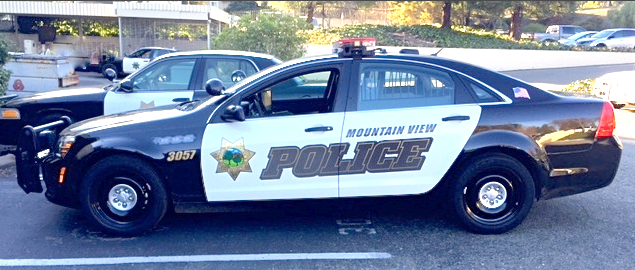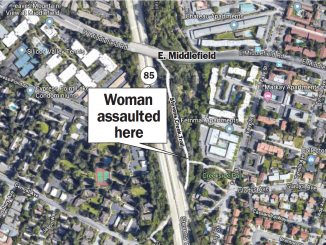
BY ELAINE GOODMAN
Daily Post Correspondent
Whether to expand protections for immigrants beyond those afforded under a new state law is a topic the Mountain View City Council will discuss tomorrow (Oct. 24).
On Oct. 5, Gov. Jerry Brown signed into law Senate Bill 54, which will prohibit state and local law enforcement agencies, including school police, from using money or personnel to investigate, interrogate, detain, or arrest people for immigration enforcement purposes. The law, also known as the California Values Act, takes effect on Jan. 1. It prohibits local law enforcement agencies from telling federal Immigration and Customs Enforcement authorities when an inmate will be released from county jail —unless that person has been convicted of crimes such as serious or violent felonies or is a sex offender.
Local law enforcement will be banned from transferring someone to immigration authorities unless a judge has approved a warrant or probable cause. Exceptions would apply that are similar to those for notification of inmate release.
But under a so-called sanctuary city policy, Mountain View could choose to eliminate those exceptions, according to a report to the council from Assistant City Attorney Nicole Wright and principal management analyst Melvin Gaines.
<script async src=”//pagead2.googlesyndication.com/pagead/js/adsbygoogle.js”></script>
<ins class=”adsbygoogle” style=”display: block; text-align: center;” data-ad-format=”fluid” data-ad-layout=”in-article” data-ad-client=”ca-pub-2138661896141800″ data-ad-slot=”4241377742″></ins>
<script>
(adsbygoogle = window.adsbygoogle || []).push({});
</script>
However, Wright and Gaines recommend that the council take no action beyond what is in the new state law.
“The Police Chief (Max Bosel) believes the city’s existing policies adequately prohibit our local policing resources from being utilized to enforce federal civil immigration law and ensure individual civil liberties, regardless of immigration status, are protected,” the report says.
Different views on sanctuary cities
The report notes some of the differing views on sanctuary cities.
Supporters of sanctuary policies say that limiting the local jurisdiction’s involvement in federal immigration enforcement makes residents feel more comfortable about reporting crimes, which may help decrease crime.
“Law-abiding, undocumented immigrants should not fear arrest or deportation for coming forward to members of the department to report a crime as a victim or a witness,” the Mountain View Police Department said in its recently updated Immigration Violation Enforcement Policy.
But others say that sanctuary jurisdictions harbor criminals and increase crime, according to the report from Wright and Gaines.
Designation may attract ICE
Sanctuary city status may also result in more attention from ICE. In a recent example, immigration officials on Sept. 28 announced hundreds of arrests in sanctuary cities where police and elected officials have refused to fully cooperate in enforcing federal immigration laws. ICE said it had arrested 500 people nationwide, including many in San Jose and San Francisco, where sanctuary city policies are in place. The sweep netted two arrests in Mountain View.
And the federal government could cut off grant funding to cities with sanctuary policies, a potential action that is being challenged in court. Mountain View’s Police Department could lose about $28,000 in Department of Justice grants.
<script async src=”//pagead2.googlesyndication.com/pagead/js/adsbygoogle.js”></script>
<ins class=”adsbygoogle” style=”display: block; text-align: center;” data-ad-format=”fluid” data-ad-layout=”in-article” data-ad-client=”ca-pub-2138661896141800″ data-ad-slot=”4241377742″></ins>
<script>
(adsbygoogle = window.adsbygoogle || []).push({});
</script>
The council on Tuesday will also take a look at SB 31, known as the California Religious Freedom Act, which took effect immediately after Brown signed it on Oct. 15.
Prohibits a ‘registry’
The law prohibits state or local agencies from giving the federal government information on a person’s religious beliefs, practices, or affiliation, for purposes of creating a “registry” for law enforcement or immigration purposes.
The law bans law enforcement agencies from collecting personal information about people’s religious beliefs or affiliation, unless it’s part of a targeted investigation.
The Mountain View council could choose to expand on SB 31 by prohibiting registries based on a person’s citizenship status, immigration status, gender, gender identity, sexual orientation, or race.



